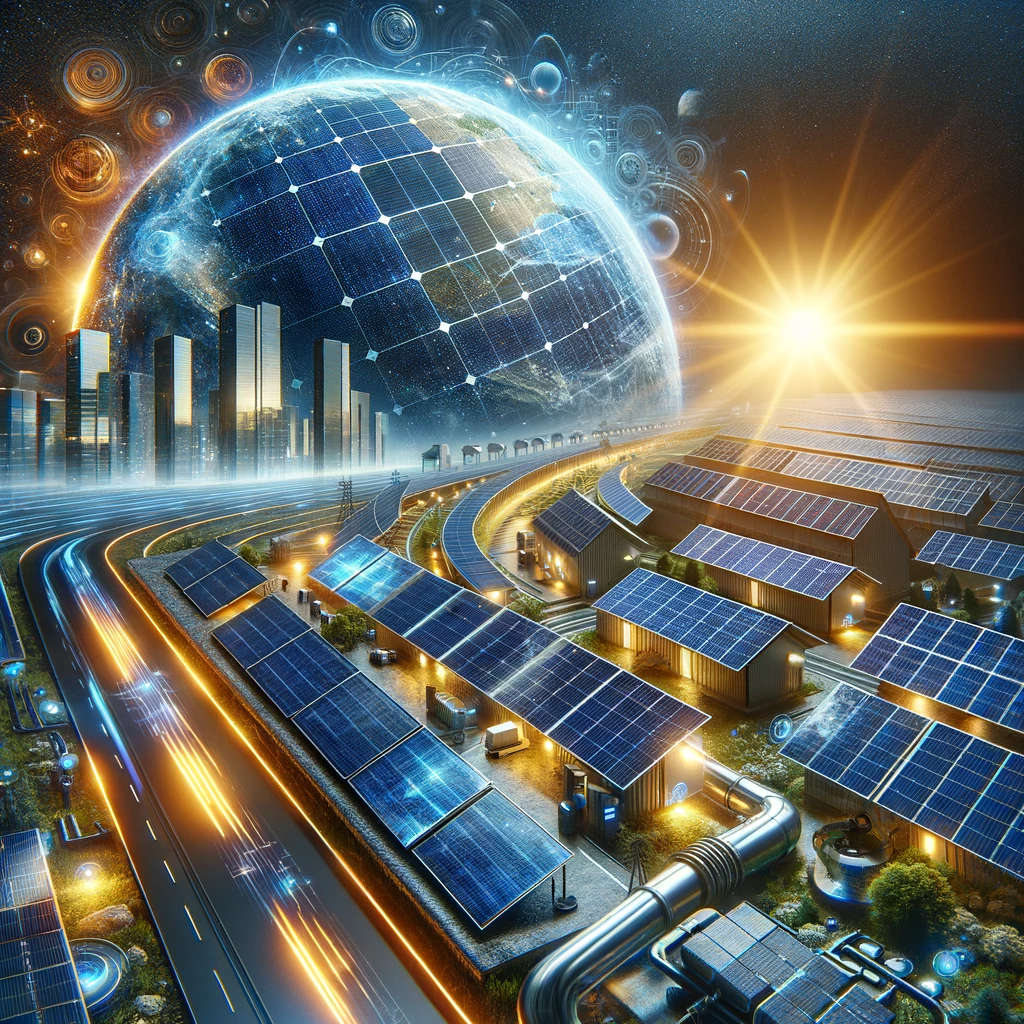As the global community becomes increasingly aware of the environmental impacts associated with traditional energy sources, the focus on renewable energy technology is intensifying. Renewable energy is seen not only as a solution to the pressing issue of climate change but also as a means to ensure sustainable, long-term energy security. This extensive article will delve into the future of renewable energy technology, examining emerging trends, innovations, and the challenges that lie ahead.
The Current Landscape of Renewable Energy
Renewable energy sources, including solar, wind, hydro, and geothermal, have made significant inroads into the global energy supply chain. As of 2024, these technologies are no longer fringe elements but are at the core of many national energy strategies. However, the journey is far from complete. The challenge now is to increase efficiency, reduce costs, and integrate renewable sources into the existing energy infrastructure without disrupting the reliability of power delivery.
Innovations Shaping the Future of Renewable Energy Tech
1. Advanced Solar Panel Technologies
Solar energy has been at the forefront of renewable energy for decades. Recent innovations aim to increase the efficiency of solar panels beyond the current limits. Technologies such as perovskite solar cells and bifacial solar panels are promising advancements that could revolutionize solar energy efficiency, making solar power more accessible and cost-effective.
2. Enhanced Wind Energy Solutions
Wind energy is witnessing a transformation, with turbines becoming larger and more powerful. Offshore wind farms, in particular, are a growing trend due to their ability to generate massive amounts of energy. The development of floating wind turbines could open up new areas of the ocean for wind energy generation, significantly increasing the potential output.
3. Battery Storage Innovations
As renewable energy sources often produce power intermittently, energy storage is a critical component of the renewable infrastructure. The future of battery technology lies in finding more efficient, durable, and cheaper battery storage solutions. Innovations such as solid-state batteries and liquid metal batteries are on the horizon, offering the potential for higher energy density and faster charging times.
4. Smart Grid Technology
The integration of smart grid technology is vital for managing the variability and distribution of renewable energy. Smart grids use digital technology to monitor and manage the transport of electricity from all generation sources to meet the varying electricity demands of end-users. They offer enhanced control over the energy flow, which is crucial for integrating renewable sources seamlessly into the national grid.
5. Hydrogen Fuel Cells
Hydrogen fuel cells represent a significant leap forward for renewable energy technology. They offer a clean and efficient way to produce energy, with water vapor as the only emission. Hydrogen can be produced from renewable sources and is seen as a promising solution for storing and transporting energy.
6. Geoengineering and Carbon Capture
While not a direct source of renewable energy, geoengineering and carbon capture technologies are essential complements to renewable strategies. They provide methods to reduce the carbon footprint of existing and future energy systems. Advances in carbon capture, utilization, and storage (CCUS) technologies are crucial for mitigating the environmental impact of traditional energy sources as the world transitions to renewable energy.

Challenges Facing Renewable Energy Adoption
1. Economic Barriers
Despite the falling costs of technology, the initial investment required for renewable energy systems is still significant. Financial incentives and innovative funding models will be essential to accelerate the adoption of renewable technologies.
2. Infrastructure and Regulatory Hurdles
Upgrading the existing energy infrastructure to accommodate renewable sources and creating supportive regulatory environments remain significant challenges. Governments will need to play a pivotal role in crafting policies that facilitate the smooth integration of renewable technologies.
3. Technological Limitations
While advancements are being made, current renewable technologies still face limitations in efficiency and performance. Continuous research and development are crucial to overcome these challenges.
The Road Ahead
The future of renewable energy technology is bright, with continuous innovations driving the sector forward. As the world increasingly turns to sustainable energy solutions, the role of technology in overcoming existing barriers cannot be overstated.

